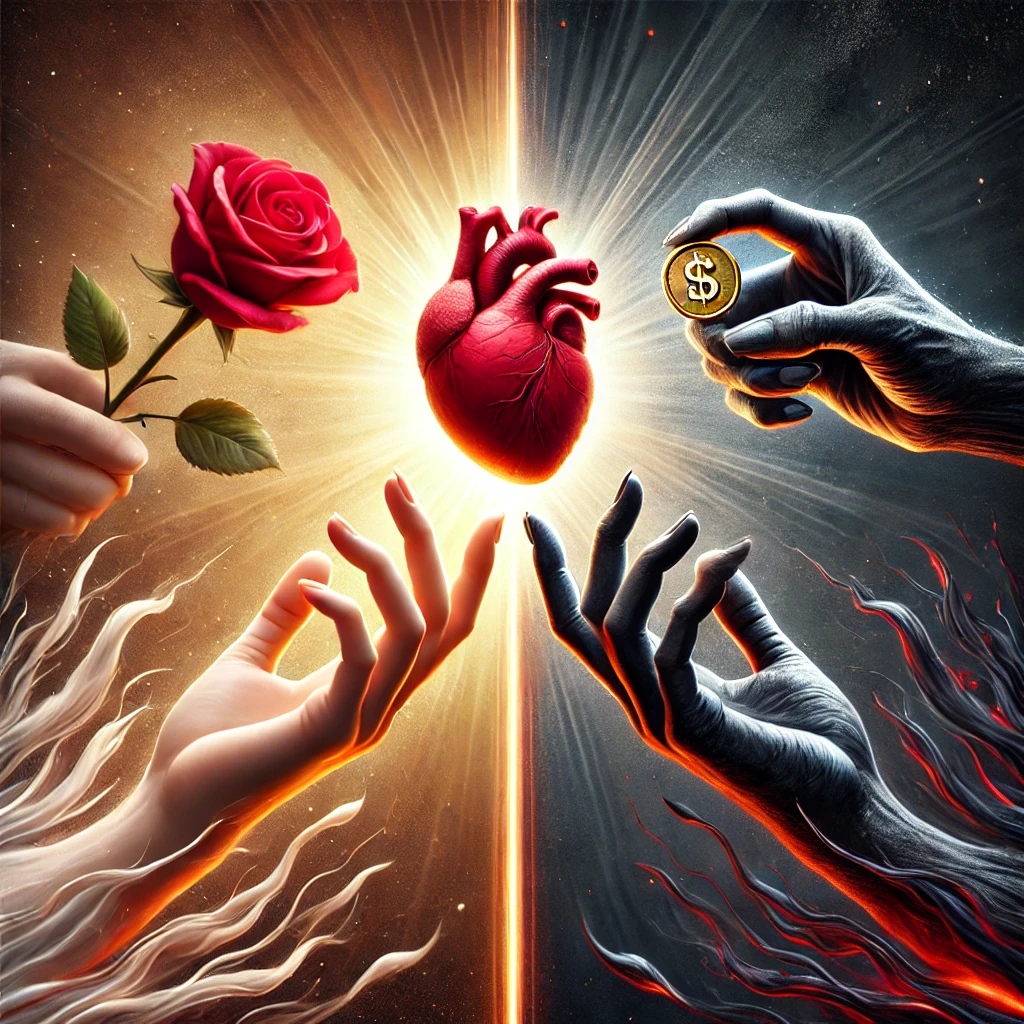Love vs. Greed: Humanity's Endless Conflict

When it comes to identifying the root of our problems and blessings, it seems clear that it boils down to love vs. greed and envy. When we operate from a place of love, we naturally want to share, uplift, and support. On the other hand, greed and envy lead to manipulation, cheating, the rat race, and, ultimately, conflicts and wars. As Mahatma Gandhi wisely said, “There is enough for everyone’s need, but not for everyone’s greed.”
The solution seems obvious: love fosters peace and prosperity, while greed breeds chaos. Yet, it’s easier said than done. What, if anything, can help humanity commit to this simple, obvious path? Despite all we know, we continue to struggle with wars and conflicts.
In politics, especially here in the U.S., we have a constitution designed to protect people’s freedoms in case the government becomes corrupt or fails to represent the people’s will. But is there a “constitution” that could guide us globally, beyond just individual rights and freedoms? If greed is left unchecked, even the constitution itself could be in jeopardy. We might already be witnessing signs of this.
This brings me to what I believe is the essence of religion and God. Before objections arise, I understand that religion is often targeted by the very same forces of envy and greed. But what I’m referring to here is real, pure religion, and a true God—one who embodies love and perfection. Even if you don’t believe in such a being, just consider the idea for a moment. Yes, terrible things have been done in the name of God, but the existence of counterfeits doesn’t negate the existence of the real thing, right?
Just like a battery needs to be recharged to function properly, society—and we as individuals—need a connection to a source of pure, unconditional love. This connection can give us the strength to resist the power of greed. I’ll leave it at that, without trying to push the reader toward any specific conclusion. After all, God is optional in this world. He gives us the freedom to believe whatever we choose. We receive so many gifts in life—sunlight, air, our bodies, our very existence. And yet, most of it we don’t fully understand. We think we do, because we give things labels and then explain them as if they were isolated from everything else. But there are still many fundamental questions that remain unanswered, questions that directly affect the quality of our lives. We seldom even ask the so-called “stupid” questions. For instance, who controls the Sun? Can we ask it to provide more heat in the winter and less in the summer? (Wouldn’t that make the weather more pleasant worldwide?) It might sound like a silly question, but is it really? Or are we simply conditioned not to ask certain things?
Imagine you’re a guest in a friend’s home, and you want to turn on the light in a room but can’t find the switch. Wouldn’t you just ask the homeowner? It would be absurd to rationalize that, since “no one owns the house,” it’s pointless to ask an imagined owner about the light switch. Or, even worse, you might convince yourself that perhaps scientists will figure it out in a few centuries—but not in our lifetime. The homeowner, being your friend, would happily guide you.
Perhaps we overcomplicate things when it comes to understanding the world and God.
